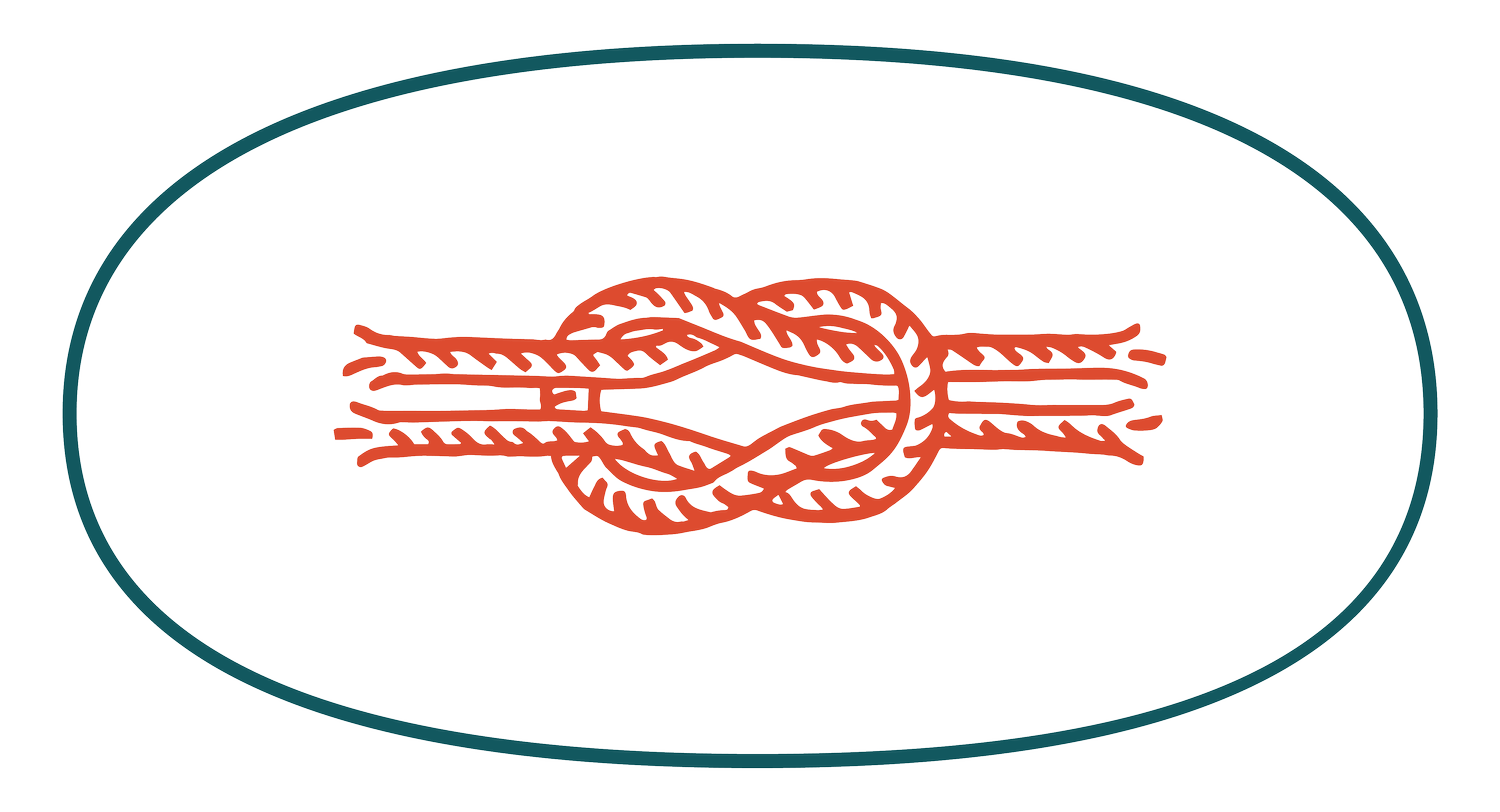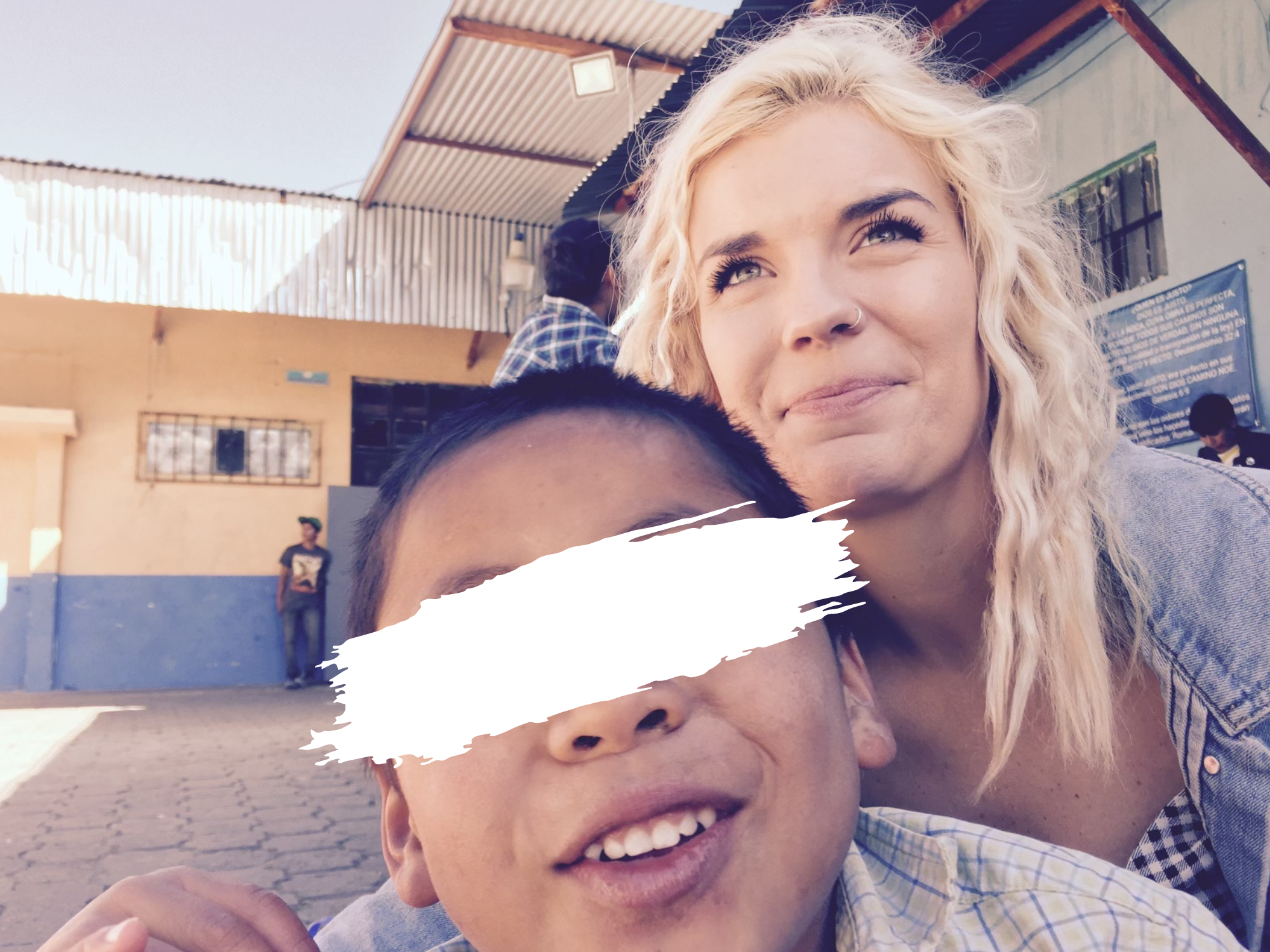On Pizza Parties and Western Saviorism
Let’s talk about hard, weird stuff. Hi, I’m Alycia, the blonde girl holding all those sleeping brown babies. I posted this photo to my personal instagram in 2016 with the caption “What I Love About Sundays.” Yes, like the Craig Morgan song. I know, okay.
Anyways, I got a lot of likes. Duh.
I know for a fact that most of my friends and certainly all of my aunts and old youth pastors saw the photo and double clicked with joy, thinking, “what a good girl she turned out to be.” At the time this photo was taken I was 23 and caring for the orphaned (read: not orphaned) boys pictured in the context of a Guatemalan orphanage. “They’re so lucky to have you” - says any and every random friend of my mom’s on Facebook.
Ever since I first stepped foot off the plane into Guatemala at 19, people have been applauding me. Congratulating me at every warbly turn. As I fumbled my way through leading without training or accountability, fixing without understanding the problem, preaching without speaking the language or understanding the culture, and a million other sporadic tasks I was grossly under qualified and ill-equipped to do, people would tell their daughters about me. And like my photos.
Why? Well, we know this photo, for one. We have come to expect this scene, this moment, this story. Ever since I can remember, images like this have been sold to me, whether directly or indirectly, consciously or subconsciously, as the pinnacle of Christian service. To be clear, the more general “picture” I am talking about here is the one with the young American holding malnourished/orphaned babies in a dusty village somewhere.
According to that logic, I did it! I am the gold standard of what a good, Christian girl from the South can do for God. I got the photo and I even look cute in it. Draw a halo around my head and take me on up to heaven.
Excuse the sarcasm, it’s part of how I cope. And to be transparent, I am writing this piece much less as a scholarly, conclusive article and much more as a journal page - an invitation into the very real time conversation I am having between my own two ears (warning; a couple of tornadoes have blown through there lately and I am only in the early stages of reconstruction.) My only hope is to inspire more questions, more reflection, and spur you on in your own journey of consideration and understanding.
All sarcasm aside, it is absolutely imperative that we talk about the role that privilege (as it pertains to socio-economic class, race, education, etc.) and what we will refer to as “Western Saviorism” have in our activism, our aid, our missions. We need to talk about photos like this - dissect them - and simultaneously pull back the stubborn layers of our own egos and cultural conditioning to discover the good, the bad, and the super blurry gray of global missions.
Let’s define what we’re talking about. The concept of a savior complex is pretty intuitively explained in the name. In evaluating the problems and needs of others, a savior complex positions the helper (volunteer, missionary, aid worker) as the sole savior, the hero, the necessary solution. A savior complex is often preceded by the idea of exceptionalism. And in many cases, American exceptionalism. American exceptionalism says - we are unique, different, superior, and exemplary (to be followed.) A savior complex says because I am indeed, exceptional, I am also equipped to do what you cannot do for yourself. I am the solution to your suffering. This narrative often centers around the personal growth experience of the helper, highlights the helplessness of those being “served”, and unfortunately, hinders local agency and sustainability at every turn.
Because this posture of exceptionalism is a prominent theme in how Western countries have long approached serving “the Global South”, we are referring to this phenomenon as Western Saviorism. It should be noted that the more commonly used term is White Saviorism or White Savior Complex. For the purposes of this article and our broader focus on global missions as a whole (in the past, we have hosted volunteers from all racial backgrounds), we will not be zeroing in on this side of the issue.
However (however, however, however), there is an important place within this larger conversation to discuss the relationship between the profound, present-day impacts of systemic racism, the Western Savior Complex, and global missions. Especially during this unique moment of racial tension and reckoning in America, it would be irresponsible of us to evaluate our approach to global missions without diving deep into conversations around racial inequality. We believe those conversations are best had over coffee, with your people (ideally, people of color in your community) So go, do that. Get back to us with what you learn.
The point is not that Westerners (or white people) should never help or travel or care. Traveling, caring, having a global sense of responsibility, responding to suffering - these things are all good in their simplest, purest form. “There are atrocious acts occurring internationally that do need attention, and humanitarian aid is absolutely essential and should be encouraged, but we must redefine our own role in providing aid beyond simply mirroring our own culture.” (Jenny Li, 2018)
For far too long, we (Westerners) have often been reckless in our attempts to solve each and every one of the world’s problems with nothing but enthusiasm and a passport. We have allowed the privileges afforded to us to fuel the idea of exceptionalism, resulting in an ignorant (and oftentimes arrogant) belief that confidence, not competence, is enough to right the wrongs of the world. We have glorified our individual acts of philanthropy under the misguided notion that they are heroic enough to alleviate collective suffering. We have ignored the ways in which our own country’s policies have contributed to the injustices we are so moved by and wish to quell in other nations. While orphan selfies go viral, local leaders have been left with no resources or platforms. This is a problem.
Examples. Examples are important.
A hypothetical: A 21 year old moves to Africa. She feels she has been called to serve the orphan and the widow (great.) She volunteers short term at a local children’s home for kids affected by AIDS (not so great.) She is moved (great.) She feels compelled to do something - anything to help (great.) She thinks in terms of grand gestures (not so great.) She fundraises hundreds of thousands of dollars to build another orphanage (not so great.) In the process, she becomes emotionally attached to one of the kids (great.) She pursues adoption, even though local laws do not support the process, even though the child has an aunt who could technically care for him with proper support (really not great.) All the while, her church and community excitedly collect offering baskets to support these grandiose efforts to support their hometown hero.
Yikes.
A non-hypothetical: I’ll volunteer (get it?) to be an example. Take something as seemingly innocent, even borderline heartwarming, as the picture above. The photo centers me, quite literally. The caption, “What i love about Sundays” focuses entirely on the fulfilling, almost whimsical nature of what I was doing in the moment - holding “orphan” babies. It makes nothing of the problematic scenario of 5 boys with nowhere to nap except dog-piled on the young, white volunteer (who, PS, at the time is ill-equipped to deal with their histories of trauma.) It does not demand that the viewer contemplate where these boys' mothers might be but rather, gives them a false sense of peace and resolution because “at least she’s there.”
If this photo tells a story, it is the classic hero-victim, savior-orphan one. At best, it’s passively overlooking the real story. At worst, it’s intentionally hiding it. The real story being that around 80% of kids living in orphanages have a living parent. The one that says on the first page: the leading cause of kids growing up in institutions is poverty. No, you’d be hard pressed to find that story told through the lens of a short term volunteer photo. Why? Because that narrative severely diminishes the need for the young, enthusiastic hero.
It sounds almost comical to say now but for most of my time living in Guatemala, I naively believed that if I gave enough hugs, conducted enough Bible studies, and threw enough pizza parties, kids would be better for it. Happier, at least. It was not until I was willing to denounce and deconstruct my Western Savior Complex that my efforts to support vulnerable children began to mean something. It wasn’t until I started listening, coming under local leadership, and pursuing systemic change (in our context, working with local government entities to implement foster care as a safer care alternative to orphanages) at the expense of my sentimental needs (there’s the rub) that things began to bear fruit.
Let’s go back to our hypothetical situation. Most of the aspects of this scenario that we deemed as “great” were directly related to an awareness of suffering and a desire to help. No need to address anything there - this is called empathy and we could all use a little more of it.
Most of the aspects that we deemed as “not so great” could arguably be related back to a misguided savior complex. What if instead of building another orphanage, she educated herself and others on the profoundly detrimental effects of institutionalization on children. What if she asked local leaders what their community most needed instead of relying on the confirmation bias of her church in the States telling her: “that’s a great idea.” What if instead of pursuing adoption as a knee-jerk reaction, her emotional attachment to that child inspired her to be an advocate for the family he did have. Less hype? For sure. More impact? Also, for sure.
This approach is likely to do away with the feel-good, instant-gratification type of service work that we are accustomed to (and sometimes addicted to.) It is also likely to work. To have real, sustainable impact over a long period for a great number of people.
On those grounds, sign us up.
All around the world, “there are serious problems of governance, of infrastructure, of democracy, and of law and order. These problems are neither simple in themselves nor are they reducible to slogans. Such problems are both intricate and intensely local...If we are going to interfere in the lives of others, a little due diligence is a minimum requirement.” (Cole, 2012)
Let’s raise funds, let’s collaborate, let’s actively participate in humanitarian aid and global missions, but let’s get a couple things straight;
Oppressed communities need to be empowered, not patronized.
Orphans need families, not sponsors.
The hurting world needs more co-laborers and allies, not more saviors.
Written by Alycia Pinizzotto




